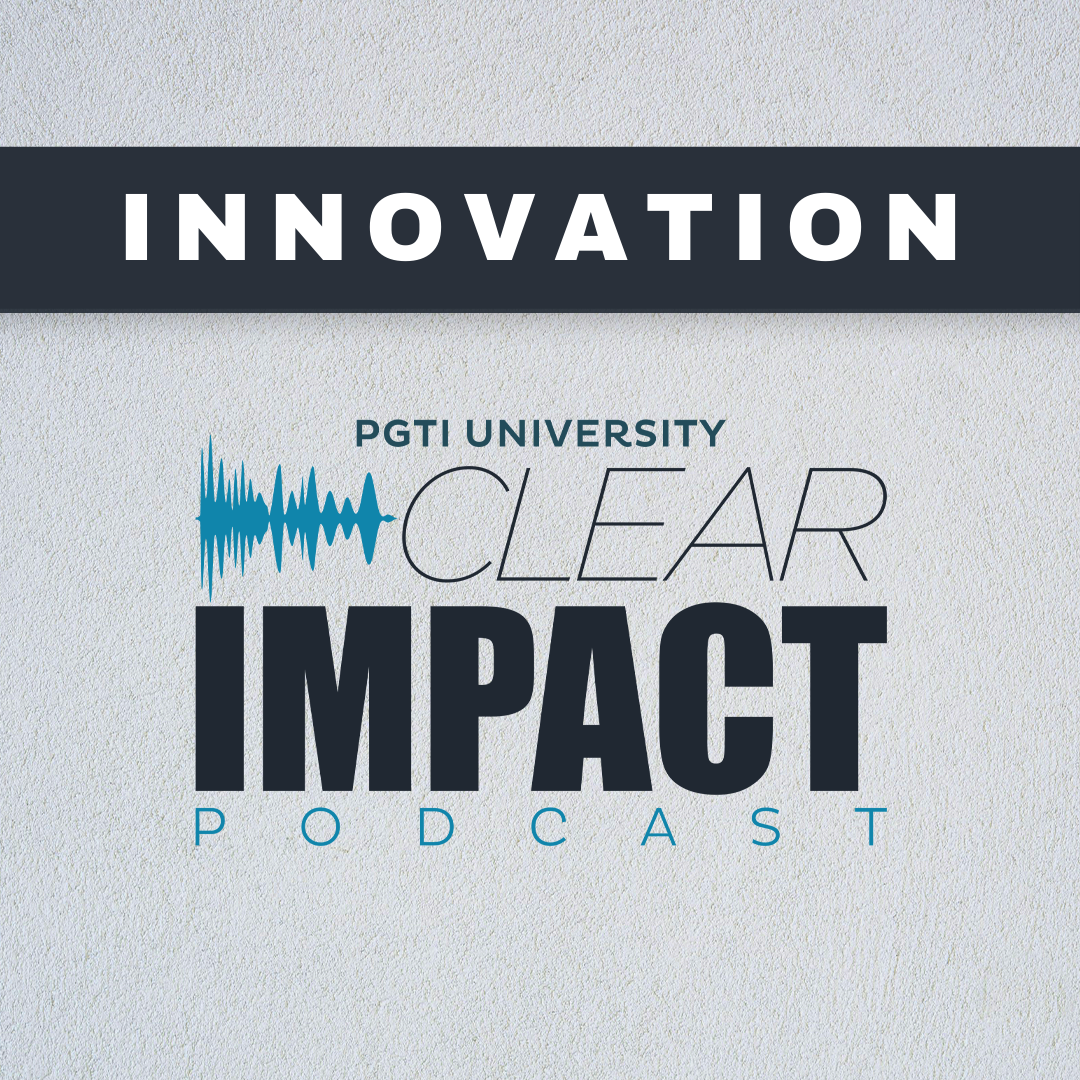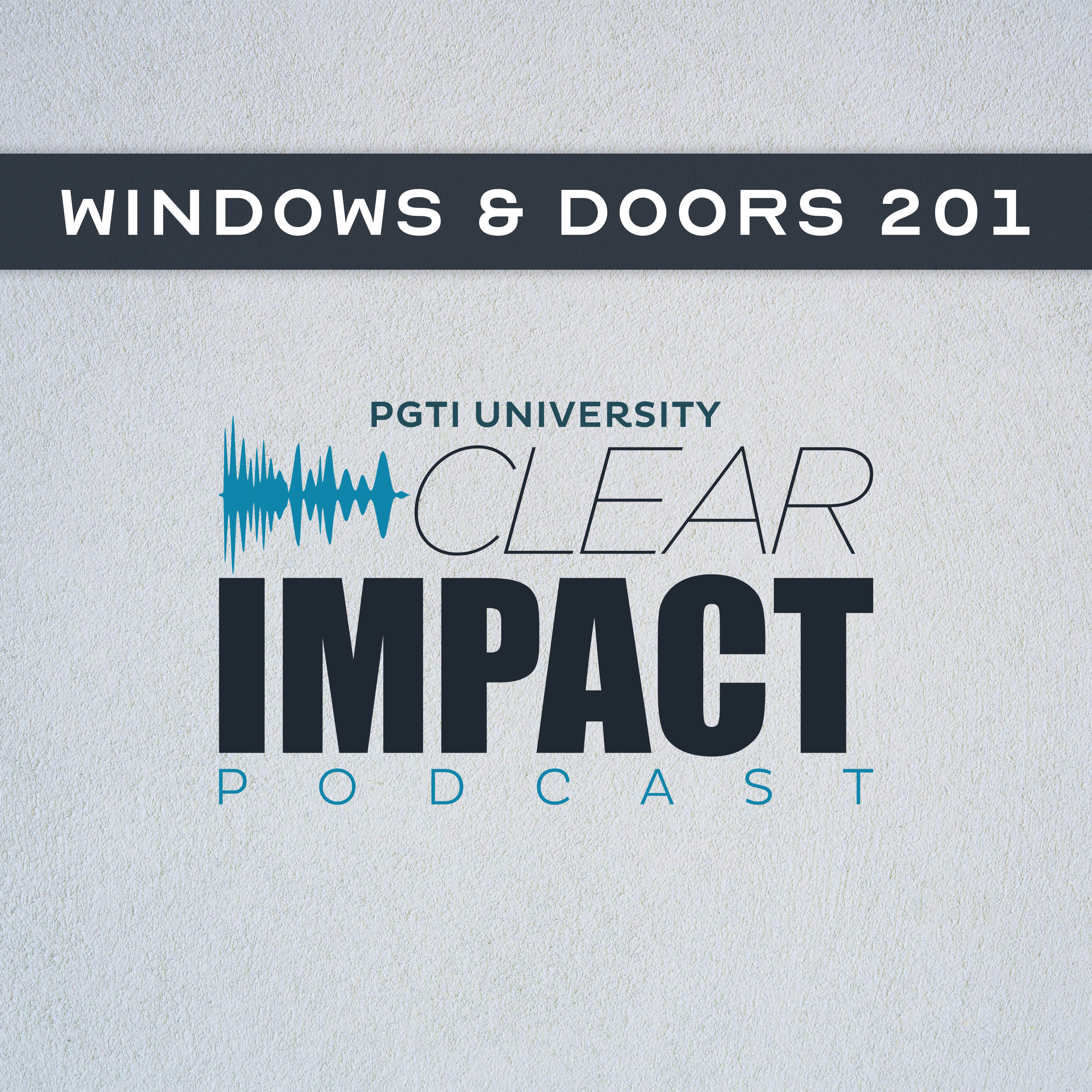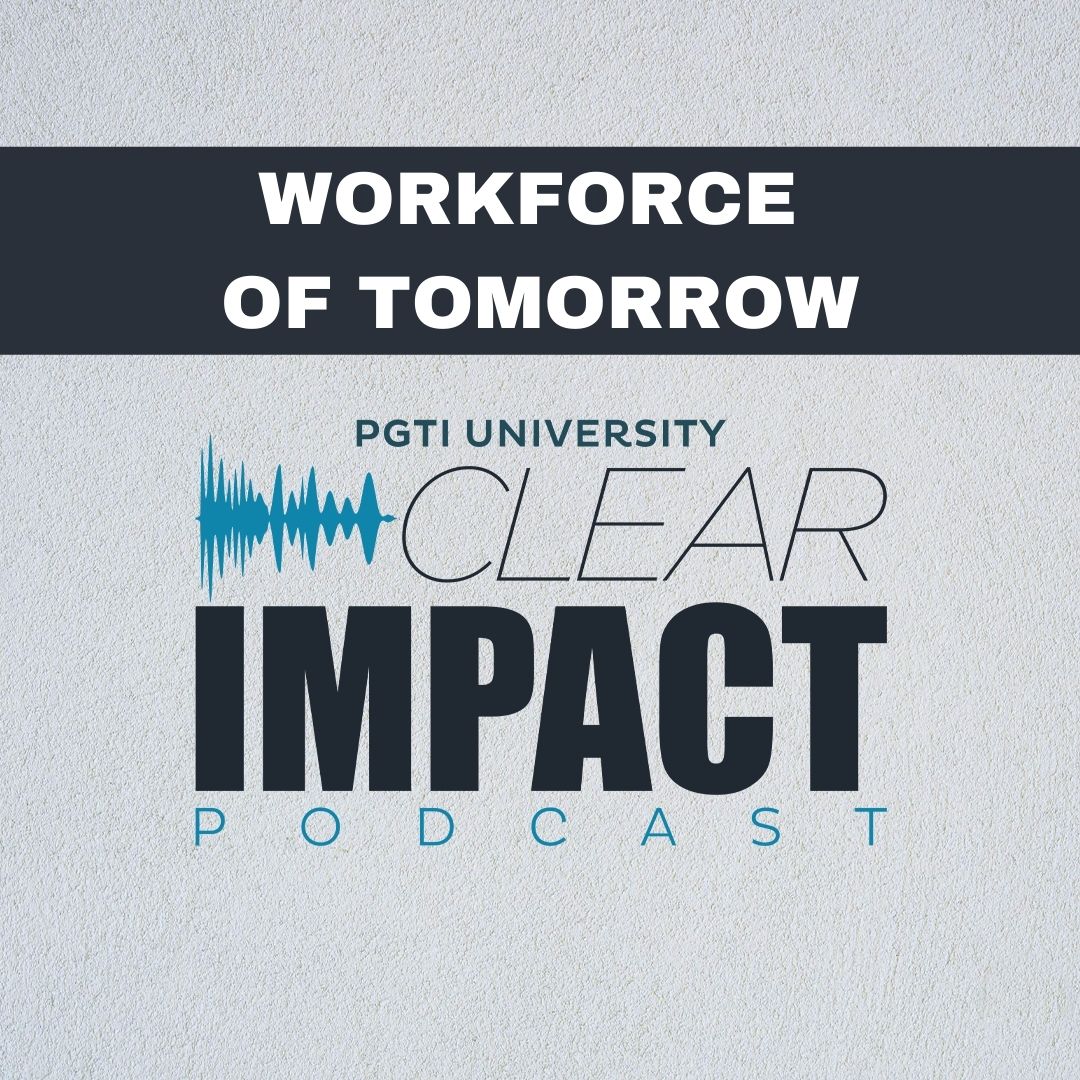Episode Transcript
[00:00:05] Speaker A: Welcome to the Clear Impact Podcast brought to you by PGTI University. Thanks for joining us today. My name is Sherry Connor and I am your host.
[00:00:17] Speaker B: All right, good afternoon. We are here on the Clear Impact podcast, and today our guest is Brian Lingle, who is returning to the studio. Welcome back, Brian.
[00:00:26] Speaker C: Thanks for having me back. Glad to be here.
[00:00:28] Speaker B: It's so good to have you, always. So you've done a few episodes with me, but in case people have not been listening or they don't remember, could you just introduce yourself, tell us a little bit about your history and your.
[00:00:39] Speaker A: Role here at PGT?
[00:00:40] Speaker C: Sure, I'd love to. Been with the company for almost ten years. I'm serving in a role currently as the corporate chaplain and life coach. Plus I do the majority of our leadership development training across the organization. I've been doing that since I got here ten years ago through the organization itself. So been in various roles in the organization, always dealing with leadership development training, curriculum, those kind of things, and also just care for our team members across the organization at all of our locations.
[00:01:07] Speaker B: Well, that's not hardly anything at all.
[00:01:09] Speaker C: No, just a little bit. It's only gotten busier as we've gotten bigger.
[00:01:13] Speaker B: Well, this climate and this culture really does lend itself to everybody caring about everybody else. So you do have a number of people out there that are extensions of you. But anyway, so this year I know you've been focused on some leadership coaching that was based on some materials from the Arbinger Institute.
[00:01:31] Speaker C: Correct.
[00:01:31] Speaker B: And you and I met and talked about like, gosh, you have so many things that you could share that would benefit people. What do you think about tackling this topic? And you were excited about that. So I know that this information is obviously available through their books. And your focus on the internal training and coaching, I wanted just to kind of bring this out. So there's three books and this whole series is about the Arbinger books. So we're going to do one book per episode. So this episode is really just an introduction. So can you tell us a little bit about Arbinger and who they are?
[00:02:02] Speaker C: Yeah, they're organization. They're located in Farmington, Utah, and they do work exclusively with organizations dealing with mindset and sort of the pervasive mindsets that operate within organizations. And they work through different training and different sort of courses that they offer that they can bring to you virtually or in person through that. And that's kind of how we got introduced to them through the book Leadership and Self Deception, which is a business parable, telling a story about an organization and how they deal with, if you will, different struggles within that organization. That kind of is our exposure to that. And that really took place through our CEO Jeff Jackson and his wife Lisa. And then that kind of launched us on this journey to partner with Arbinger. And they work with a ton of different organizations, hospitals, US. Military, if you will us. Embassies. They work with sort of mindset, sort of how we operate, how we think, what that looks like.
[00:02:50] Speaker B: Wow, that's cool. You and I talked about this maybe a year ago or so, and so we ordered the books and I've read them and they're great. And so what kind of results do they claim? Or what kind of results are other organizations seeing because of this training?
[00:03:04] Speaker C: Yeah, I think their big, if you will thing they bring forth is if you deal with sort of we desire a better result, if you will, as an organization. And a lot of times we'll drive that through behavior changes or behavior modification. They really try to get us to grasp and understand that you're far more successful if you address pervasive mindsets at the onset in regards to if you just simply force behavior modification or put behavior changes in place and you don't address the underlying mindset. What you typically see is they don't last because they just will not. They're going to return back to their old behaviors because you've not addressed mindset. And they bring forth a lot of statistics in regards to the impact this has. But typically when you see these changes, if we desire this greater result, if we address mindset, we're more likely to see a result that lasts. And that's kind of what they work through and work with in organizations.
[00:03:54] Speaker B: And so it's usually from the top down, right?
[00:03:56] Speaker C: Yes, very much so. From the top down. All of these are really driven. And one of the things I'm the proudest of is that's where ours is and what we're driving through the organization is it really started with the very, very top of the organization.
[00:04:08] Speaker B: Right. Which would be Lisa Jackson.
[00:04:10] Speaker C: Exactly right, exactly right, exactly right.
[00:04:13] Speaker B: It was Jeff's lovely wife. We joke around about that, that she's the Jeff whisperer.
[00:04:18] Speaker C: Very true.
[00:04:18] Speaker B: Yeah. And shout out to her. She's an amazing person. I've had opportunities to chat with her. And also kudos to Jeff for listening and grabbing a hold of it and seeing that this is something worth implementing. And then charging you with how to roll that out.
[00:04:32] Speaker C: No, very much so. I mean, I think that shouldn't be lost is just the wisdom of seeing the benefit of this now. It's just really blossom into something that I'm really excited for the future and what we're going to see with this being spread throughout the organization. So it's good stuff all the way around.
[00:04:45] Speaker B: Yeah. And it's not just about how to operate more effectively as an organization. It's more just a mindset overall, just life in general. So not just your work relationships, but your family relationships and all of that. Can you talk a little bit about that?
[00:05:01] Speaker C: Yeah, I think the power of this really impacts in many ways, and I think we'll be executing next week, I think, our 7th training that we've been going through. I think we've taken upwards of 200 of our leaders through this oh, wow. In the last 18 months. And I would say each of those classes of 19 to 25 that we offer, some of the biggest takeaways, some of the biggest AHA moments that we're seeing are probably in the closest relationships that we have, and that's within our families. That's typically where some of this really kind of, if you will, hits home, where you really capture some of the terminology when we talk about being in the box and sort of the boxes that we get in and some of the things that we do in regards to how we see people. And so so much of it is really dealing with relationships. And a lot of times those relationships are your family. I can't think of a single class where there hasn't been one, two, or three individuals that have reached out to me afterwards and shared how this has impacted a relationship with a child or a spouse or a significant other or something like that to where they were like, wow, I really didn't see that before. This so pretty powerful stuff, actually.
[00:06:13] Speaker B: Yeah, well, people are people, and just because we put on our work attire and we come to our offices and we perform the task, doesn't mean that we're isolating just that part of us. We're more Holistic now than I think we've been. And this organization really honors that and provides a lot for us to tend to our families and take care of our own selves with PTO and things like that. So anything else we should know about Arbinger before we close out this little.
[00:06:41] Speaker C: I mean, I think a lot of what we talked about right. I really do agree with what you're saying. I think this training and what we're putting our leaders through to me really is about the Holistic care of the team member. And that's one of the things, I guess it's been the most impactful on me as I've been exposed to this, is the ability that we are navigating through this to help people in ways beyond what they bring back to us as an ROI. The bottom line, the numbers, whatever it would be, it's really that Holistic care about them as a human being and that they matter. They have worth and they have value and that we as an organization are investing in that because it matters to us. And I just think that says a lot about who we are. At the end of the day, we're not a charity, obviously. We're here to make a profit, and I get all that. But when we say people matter, they really do. And so this kind of stuff, to me is just incredible what it can do from a relationship standpoint in helping people.
[00:07:35] Speaker B: That's excellent. Oh, good. Well, I'm excited to learn more about each of the individual books. I did read them, but it's been a minute, and so it'll be good for me to refresh on that as well. So we're going to tackle books one, two, and three in subsequent episodes to come.
[00:07:48] Speaker C: Awesome.
[00:07:49] Speaker B: Awesome. All right. Thanks, Brian. We'll talk soon.
[00:07:50] Speaker C: All right, bye bye.
[00:07:51] Speaker B: All right, bye.
[00:07:52] Speaker A: PGTI University is the customer education team for an entire family of brands. We began with the original Easy Breeze Porch Enclosure line then became PGT, america's leading brand of impact resistant windows and doors. We then added CGI. CGIC window, western Window Systems, new south windows, Echo Windows and Doors, Anlin windows and Doors. And our latest acquisition, Martin Garage Doors. We create products built to withstand major storms, keeping people safe, secure and prepared. Our exceptional brands give you the protection you need without compromising design or functionality. PGTI University is here to educate you, our listener, so that you can be a more informed consumer of window indoor products.


